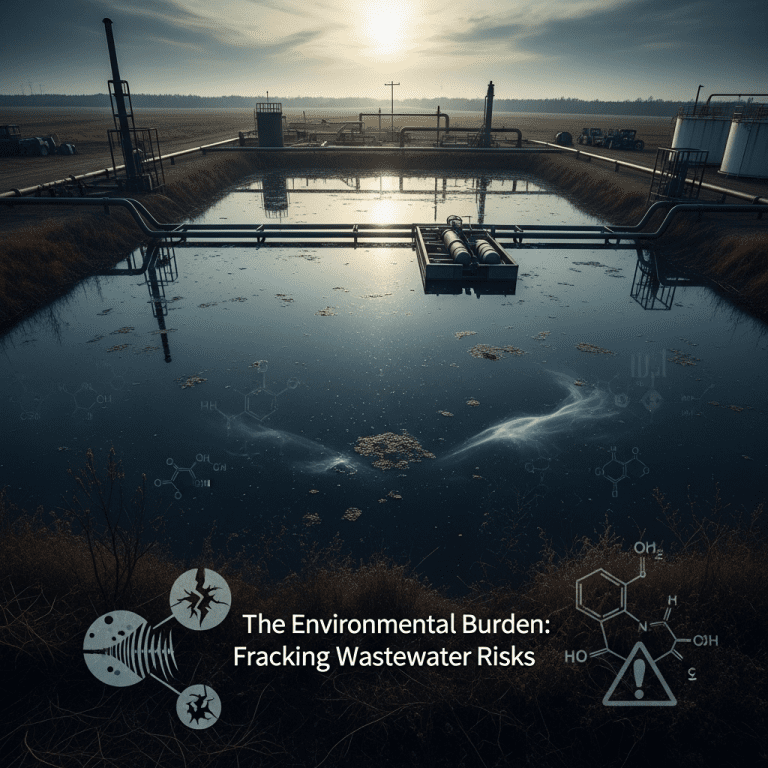The rapid expansion of hydraulic fracturing, or fracking, in recent years has brought attention to the very real problem of fracking wastewater. As global energy demands soar and unconventional oil and gas extraction continues well into 2025, the environmental and public health challenges of wastewater generated from fracking are more pressing than ever.
Understanding the Very Real Problem of Fracking Wastewater
Fracking is a process that injects high-pressure water, sand, and chemicals deep underground to release trapped oil and natural gas. This process produces immense volumes of fracking wastewater, also known as produced water or flowback. The very real problem of fracking wastewater lies in its complex mix of hazardous substances, including heavy metals, radioactive materials, salts, and volatile organic compounds.
According to industry estimates, a single fracking well can generate millions of gallons of wastewater over its operational life. With tens of thousands of wells in operation worldwide, effective management of this toxic byproduct remains a substantial challenge for both industry and regulators.
Environmental Impacts and Health Concerns
Groundwater and Surface Water Contamination
One of the primary environmental concerns is the risk of surface water and groundwater contamination. Improperly handled fracking wastewater can leak from storage ponds, spill during transportation, or seep through faulty well casings. Such incidents have been linked to elevated levels of benzene, arsenic, and other contaminants in local water supplies, raising serious public health concerns.
Earthquakes and Seismic Activity
The common practice of deep-well injection, where fracking wastewater is pumped into underground disposal wells, has also been associated with increased seismic activity. In regions across North America and beyond, researchers have documented a spike in small- to moderate-magnitude earthquakes directly linked to wastewater injection. This seismic risk adds yet another dimension to the very real problem of fracking wastewater.
Ecological and Agricultural Threats
Spills or improper management of fracking wastewater can also have dire consequences for surrounding ecosystems. Toxic substances can poison aquatic life, damage crops, and disrupt local agriculture, threatening both biodiversity and local food security. Livestock and wildlife exposed to contaminated water sources may suffer long-term health effects.
Regulatory Gaps and Industry Practices
Many environmentalists and public health advocates argue that existing regulations are simply not keeping pace with the rapid growth of the fracking industry. While some jurisdictions have established stricter storage and monitoring requirements, enforcement remains uneven. There are also significant data gaps regarding the chemicals used in fracking fluids, as many are protected as trade secrets.
Industry response has been mixed. Some companies have invested in improved wastewater treatment and recycling methods, while others continue to rely heavily on deep-well injection—a practice fraught with risk. The patchwork regulatory landscape makes it difficult to ensure safe and responsible management across the sector.
Emerging Solutions and Innovations
Advanced Treatment Technologies
To address the very real problem of fracking wastewater, researchers and technology providers are developing advanced treatment options. These include membrane filtration, reverse osmosis, and new chemical-free purification systems that can remove salts, heavy metals, and other toxic components. Some companies are now able to recycle and reuse significant portions of their wastewater, reducing freshwater consumption and limiting the need for large-scale disposal.
Policy and Market Incentives
Governments are starting to offer incentives and funding for innovative wastewater recycling programs. Policymakers in several regions are considering stricter permitting for deep-well injection and requiring more robust tracking of wastewater flows. Meanwhile, local communities and NGOs are actively monitoring industry practices, pushing for greater transparency and improved public safety standards.
The Future of Fracking Wastewater Management
Looking ahead, the fracking industry’s social license to operate may well depend on its ability to address the very real problem of fracking wastewater. Embracing a combination of cutting-edge technologies, stronger regulations, and collaborative engagement with stakeholders will be essential. Without these steps, energy companies risk not only reputational harm, but also the possibility of stricter bans or moratoriums in regions facing acute water stress.
Taking Action: What Can Be Done?
As public awareness grows, so does the pressure on both regulators and industry leaders to find safe, sustainable solutions. Adopting best practices for wastewater treatment, investing in leak detection and response systems, and increasing transparency will be crucial in mitigating risks. For those considering investment or involvement in the energy sector, carefully reviewing a company’s environmental record is more important than ever before. For more insight into responsible energy practices, visit investment research platforms.
Ultimately, the very real problem of fracking wastewater cannot be ignored. Through collective action, technology, and a commitment to environmental stewardship, the industry can chart a more sustainable course in 2025 and beyond.









